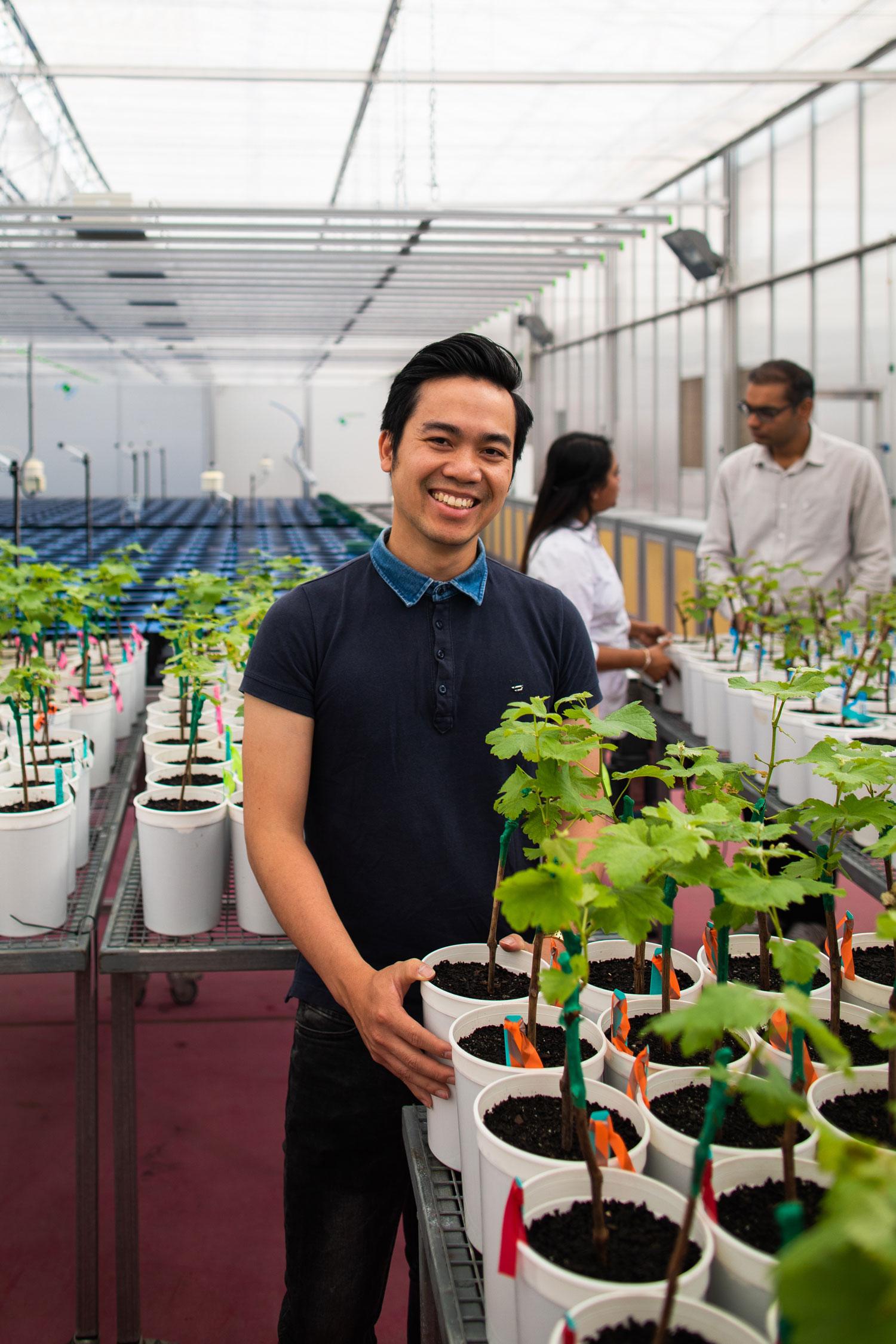Improving salt tolerance in grapevines
Broaden your knowledge in plant science and viticulture - investigate the movement of salt and water in grapevines in order to understand the effect of salinity on growth.
Salt and drought are the two major abiotic stresses affecting crop plant health, growth and development. Improving productivity of crops is necessary to meet the increasing worldwide demand for cereals, fruits and vegetables.
Although, the Australian agricultural industry is dominated by cereal crops, a major economic consideration is the Australian wine industry whose wines alone total $4.5 billion in sales and $2.1 billion in exports annually and support a $9.2 billion pa wine tourism industry.

Grape growing in Australia accounts for 180,000 ha of which 86% is irrigated. The high percentage of irrigated vineyards can be attributed to the need to make grape growing more profitable and suited to a range of climatic and soil conditions.
Although the area of irrigated grapevines in Australia affected by salinity is currently relatively small, it is likely to increase due to increasing aridity with consequential inadequate leaching of root zone salts, which is in addition to increasing irrigation water salinity levels in some regions.
Salinity is acknowledged to seriously affect some iconic grape growing regions such as the Barossa, the Padthaway and the Riverland regions where a large proportion of commercial wines are produced. Grapevine is an excellent model plant to study plant water relations and abiotic stress tolerance.
To address major economic and environmental concerns, it is necessary to understand, quantify and manage the uptake and transport of ions through a plant.
The overall aim of this project is to identify grapevine varieties that differ in their uptake and movement of salt and water through the plant, in order to gain a better understanding of salt tolerance. You will evaluate how salt moves across the different tissues and major organs of grapevine using different varieties and root stocks.
In this honours project you will develop skills in:
- Plant physiology measurements
- Greenhouse and growth chamber experimentation
- Experimental design and data analysis
- Independent research skills
Supervisor
- Dr Megan Shelden
- Research area: School of Agriculture, Food and Wine
- Recommended honours enrolment: Honours in Plant Science or Honours in Viticulture
